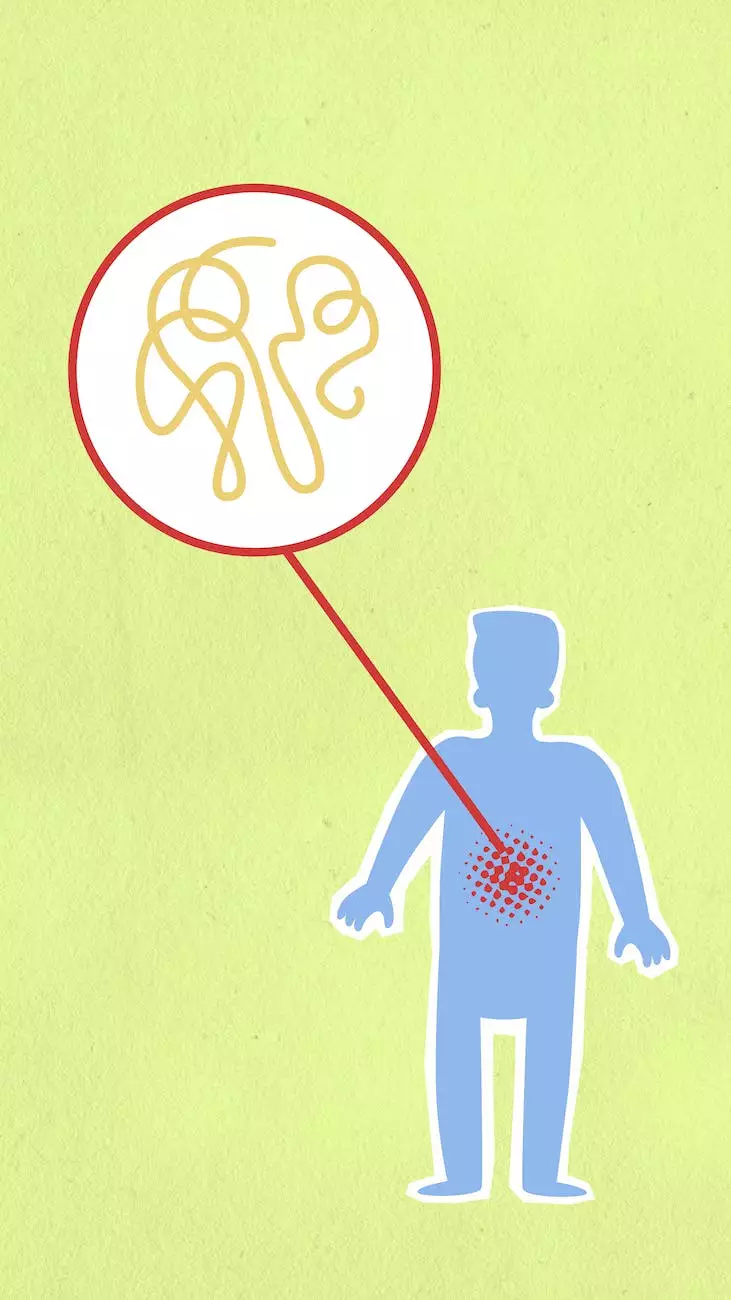VAGUS NERVE DYSFUNCTION

Understanding Vagus Nerve Dysfunction
The vagus nerve, also known as the tenth cranial nerve, plays a crucial role in regulating various bodily functions. It serves as a vital communication pathway between the brain and many organs, including the heart, lungs, and digestive system. Vagus nerve dysfunction, or VND, refers to any disruption or impairment in the normal functioning of this critical nerve.
Causes of Vagus Nerve Dysfunction
There are several potential causes of VND, each contributing to varying degrees of dysfunction. Some common causes include:
- Physical trauma or injury
- Chronic stress or anxiety
- Nerve-related disorders
- Autoimmune conditions
- Underlying medical conditions
It is important to note that Vagus Nerve Dysfunction can manifest differently in different individuals. Understanding the causes can help in developing effective treatment strategies.
Signs and Symptoms
Vagus Nerve Dysfunction can result in a wide range of symptoms, which can vary from mild to severe. Some common signs of VND include:
- Heart palpitations or irregular heartbeats
- Digestive issues such as nausea, vomiting, or bloating
- Difficulty breathing or shortness of breath
- Anxiety, depression, or mood swings
- Chronic fatigue or excessive tiredness
It's important to consult a healthcare professional if you experience any of these symptoms, as they can provide guidance and treatment options tailored to your specific situation.
Treatment Options for Vagus Nerve Dysfunction
Lifestyle Modifications
For milder cases of Vagus Nerve Dysfunction, certain lifestyle modifications can significantly improve symptoms and overall well-being. Some self-care strategies include:
- Stress reduction techniques, such as meditation or yoga
- Regular physical exercise
- Healthy and balanced diet
- Adequate sleep and relaxation
These lifestyle changes can positively impact nerve function and alleviate associated symptoms.
Medications and Therapy
In more severe cases, medical intervention may be necessary. Healthcare professionals can prescribe medications to target specific symptoms, such as beta-blockers for heart palpitations or antidepressants for mood disorders.
Furthermore, functional therapy, such as physical therapy or breathing exercises, can aid in improving vagus nerve function and overall health.
Natural Remedies and Alternative Treatments
Many individuals seek alternative treatments or natural remedies to complement traditional medical approaches. While not a substitute for professional healthcare, some options that may provide additional support include:
- Acupuncture
- Herbal supplements
- Chiropractic care
- Meditation and mindfulness practices
It is essential to discuss these options with a healthcare professional to ensure their safety and effectiveness for your specific condition.
Improving Your Quality of Life
Self-Care and Emotional Well-being
Living with Vagus Nerve Dysfunction can be challenging, but there are steps you can take to enhance your overall quality of life. Prioritizing self-care and emotional well-being is crucial in managing the condition:
- Engage in activities that bring joy and relaxation
- Seek emotional support from loved ones or support groups
- Practice stress management techniques
- Develop healthy coping mechanisms
Remember, you are not alone in your journey, and reaching out for support is an essential part of your well-being.
Maintaining Optimal Vagus Nerve Health
Whether you are experiencing vagus nerve dysfunction or simply want to maintain optimal health, there are lifestyle choices that can support the health of your vagus nerve:
- Stay hydrated and maintain a healthy diet
- Get regular exercise
- Practice deep breathing exercises
- Prioritize adequate sleep and rest
- Engage in activities that reduce stress
By adopting these practices, you can promote a healthy vagus nerve and overall well-being.
Consulting a Professional
If you suspect vagus nerve dysfunction or have any related concerns, it is important to consult a qualified healthcare professional. They can assess your symptoms, provide an accurate diagnosis, and recommend appropriate treatment strategies tailored to your individual needs.
Conclusion
In conclusion, understanding Vagus Nerve Dysfunction is crucial in managing its symptoms and improving your quality of life. By recognizing the signs, exploring various treatment options, and making beneficial lifestyle choices, you can effectively navigate this condition. Remember, seeking help from healthcare professionals and maintaining a proactive approach towards your well-being is vital. Jenny Demeaux, RNC ND, is committed to providing comprehensive information and support for individuals dealing with Vagus Nerve Dysfunction. Reach out to her today to uncover additional insights and guidance.




